Steering Committee Members
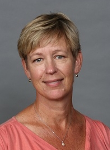 Dr. Miriam Bender received her PhD in Nursing Science in May 2013 from the University of San Diego Hahn School of Nursing and Health Science, and joined the University of California, Irvine Sue & Bill Gross School of Nursing as an Assistant Professor in November 2014. Her scholarship falls into two distinct but related streams, empirical and philosophical. Empirically, Dr. Bender’s research focuses on the relationships between the organization of care delivery, multi-professional practice dynamics, and patient care quality and safety outcomes. Her most recent work seeks to conceptualize and quantify the efficacy of a model that integrates a new role, the clinical nurse leader (CNL), into nursing care delivery. This program of research intersects with implementation science as it explores how care interventions, context (people, things, and processes that characterize where the intervention is introduced), and implementation (processes of intervention integration) interact with each other to influence outcomes. Philosophically, Dr. Bender has focused on engaging and re-interpreting fundamental disciplinary concepts such as the nursing metaparadigm and art-science dualism using a process philosophy lens. She is also founding Director of the Center for Nursing Philosophy, which provides a platform for engaging the local, national, and international nursing community and aims to advance novel scholarship elucidating the assumptions, principles, and concepts driving the discipline.
Dr. Miriam Bender received her PhD in Nursing Science in May 2013 from the University of San Diego Hahn School of Nursing and Health Science, and joined the University of California, Irvine Sue & Bill Gross School of Nursing as an Assistant Professor in November 2014. Her scholarship falls into two distinct but related streams, empirical and philosophical. Empirically, Dr. Bender’s research focuses on the relationships between the organization of care delivery, multi-professional practice dynamics, and patient care quality and safety outcomes. Her most recent work seeks to conceptualize and quantify the efficacy of a model that integrates a new role, the clinical nurse leader (CNL), into nursing care delivery. This program of research intersects with implementation science as it explores how care interventions, context (people, things, and processes that characterize where the intervention is introduced), and implementation (processes of intervention integration) interact with each other to influence outcomes. Philosophically, Dr. Bender has focused on engaging and re-interpreting fundamental disciplinary concepts such as the nursing metaparadigm and art-science dualism using a process philosophy lens. She is also founding Director of the Center for Nursing Philosophy, which provides a platform for engaging the local, national, and international nursing community and aims to advance novel scholarship elucidating the assumptions, principles, and concepts driving the discipline.
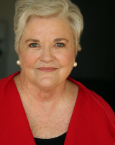 Dr. Patricia Benner is a professor emerita at the University of California School of Nursing. Dr. Benner is a noted nursing educator and author of From Novice to Expert: Excellence and Power in Nursing Practice, which has been translated into twelve languages. She has directed over 50 doctoral dissertations. She pioneered the use of Interpretive Phenomenology in Nursing. She is the director of this Carnegie Foundation for the Advancement of Teaching National Nursing Education Study, Educating Nurses: A Call for Radical Transformation which is the first such study in forty years. Additionally, she collaborated with the Carnegie Preparation for the Professions studies of clergy, engineering, law, and medicine. Dr. Benner is designated as a Living Legend of the American Academy of Nursing. She was elected an honorary fellow of the Royal College of Nursing and Danish Society for Nurses. Her work has influence beyond nursing in the areas of clinical practice and clinical ethics. She has received two honorary doctorates. She is the first author of Expertise in Nursing Practice: Caring, Ethics and Clinical Judgment (2010) with Christine Tanner and Catherine Chesla, and she has coauthored twelve other notable books including a 2nd Edition of Clinical Wisdom and Interventions in Acute and Critical Care: .A Thinking-In-Action Approach.
Dr. Patricia Benner is a professor emerita at the University of California School of Nursing. Dr. Benner is a noted nursing educator and author of From Novice to Expert: Excellence and Power in Nursing Practice, which has been translated into twelve languages. She has directed over 50 doctoral dissertations. She pioneered the use of Interpretive Phenomenology in Nursing. She is the director of this Carnegie Foundation for the Advancement of Teaching National Nursing Education Study, Educating Nurses: A Call for Radical Transformation which is the first such study in forty years. Additionally, she collaborated with the Carnegie Preparation for the Professions studies of clergy, engineering, law, and medicine. Dr. Benner is designated as a Living Legend of the American Academy of Nursing. She was elected an honorary fellow of the Royal College of Nursing and Danish Society for Nurses. Her work has influence beyond nursing in the areas of clinical practice and clinical ethics. She has received two honorary doctorates. She is the first author of Expertise in Nursing Practice: Caring, Ethics and Clinical Judgment (2010) with Christine Tanner and Catherine Chesla, and she has coauthored twelve other notable books including a 2nd Edition of Clinical Wisdom and Interventions in Acute and Critical Care: .A Thinking-In-Action Approach.
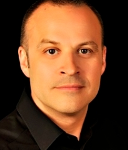 Dr. Dave Holmes is a Professor and Associate Dean, Academic Programs and Student Affairs in the Sue & Bill Gross School of Nursing at the University of California, Irvine. After completing my B.Sc. (Ottawa, 1991), M.Sc. (Montreal, 1998) and Ph.D. (Montreal, 2002) in Nursing, I have completed a CIHR post-doctoral fellowship in Health Care, Technology and Place at the University of Toronto (2003). To date, I have received funding from the Canadian Institutes of Health Research and the Social Sciences and Humanities Research Council of Canada, to conduct my research program on risk management in the fields of public health and forensic nursing. Most of my works, comments, essays, analyses and empirical research are based on the poststructuralist works of Deleuze & Guattari and Michel Foucault. My works have been published in top-tier journals in nursing, criminology, sociology and medicine. To this day, I have published over 155 articles in peer reviewed journals and 50 book chapters. I am co-editor of Critical Interventions in the Ethics of Health Care (Routledge – April 2009), Abjectly Boundless: Boundaries, Bodies and Health Care (Routledge – January 2010), (Re)Thinking Violence in Health Care Settings: A Critical Approach (Routledge – December 2011), Power and the Psychiatric Apparatus (Routledge – March 2014) and, Radical Sex Between Men: Assembling Desiring-Machines (Routledge – September 2017). I have presented at numerous national and international conferences and was appointed as Honorary Visiting Professor in Australia, Indonesia, the United States and the United Kingdom.
Dr. Dave Holmes is a Professor and Associate Dean, Academic Programs and Student Affairs in the Sue & Bill Gross School of Nursing at the University of California, Irvine. After completing my B.Sc. (Ottawa, 1991), M.Sc. (Montreal, 1998) and Ph.D. (Montreal, 2002) in Nursing, I have completed a CIHR post-doctoral fellowship in Health Care, Technology and Place at the University of Toronto (2003). To date, I have received funding from the Canadian Institutes of Health Research and the Social Sciences and Humanities Research Council of Canada, to conduct my research program on risk management in the fields of public health and forensic nursing. Most of my works, comments, essays, analyses and empirical research are based on the poststructuralist works of Deleuze & Guattari and Michel Foucault. My works have been published in top-tier journals in nursing, criminology, sociology and medicine. To this day, I have published over 155 articles in peer reviewed journals and 50 book chapters. I am co-editor of Critical Interventions in the Ethics of Health Care (Routledge – April 2009), Abjectly Boundless: Boundaries, Bodies and Health Care (Routledge – January 2010), (Re)Thinking Violence in Health Care Settings: A Critical Approach (Routledge – December 2011), Power and the Psychiatric Apparatus (Routledge – March 2014) and, Radical Sex Between Men: Assembling Desiring-Machines (Routledge – September 2017). I have presented at numerous national and international conferences and was appointed as Honorary Visiting Professor in Australia, Indonesia, the United States and the United Kingdom.
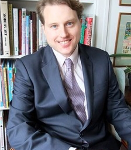 Professor Duncan Pritchard is Distinguished Professor of Philosophy in the School of Humanities. Professor Pritchard’s research is mainly in the area of epistemology, and he has published broadly in this field. His monographs include Epistemic Luck (Oxford UP, 2005), The Nature and Value of Knowledge (co-authored, Oxford UP, 2010), Epistemological Disjunctivism (Oxford UP, 2012), and Epistemic Angst: Radical Skepticism and the Groundlessness of Our Believing (Princeton UP, 2015). In 2005, Prof Pritchard held a Danish Academy of Sciences/NAMICONA Visiting Research Professorship and was also a Mellon Foundation Visiting Epistemology Fellow at Brown University. In 2007, he was awarded the Philip Leverhulme Prize in Philosophy. In 2009, he was a Visiting Professor at the University of Helsinki. In 2011, he was elected to a Fellowship of the Royal Society of Edinburgh. In 2013, his work was the subject of the Annual Cologne Summer School in Philosophy. In 2013, he delivered the Annual Soochow Lectures in Philosophy. In 2016 his work was the subject of the Annual LOGOS Philosophy Masterclass Lectures, University of Barcelona. In 2016 he was invited to be the Tang Chun-I Distinguished Visiting Professor, Chinese University of Hong Kong (deferred). Prof Pritchard has so far delivered three Royal Institute of Philosophy Lectures.
Professor Duncan Pritchard is Distinguished Professor of Philosophy in the School of Humanities. Professor Pritchard’s research is mainly in the area of epistemology, and he has published broadly in this field. His monographs include Epistemic Luck (Oxford UP, 2005), The Nature and Value of Knowledge (co-authored, Oxford UP, 2010), Epistemological Disjunctivism (Oxford UP, 2012), and Epistemic Angst: Radical Skepticism and the Groundlessness of Our Believing (Princeton UP, 2015). In 2005, Prof Pritchard held a Danish Academy of Sciences/NAMICONA Visiting Research Professorship and was also a Mellon Foundation Visiting Epistemology Fellow at Brown University. In 2007, he was awarded the Philip Leverhulme Prize in Philosophy. In 2009, he was a Visiting Professor at the University of Helsinki. In 2011, he was elected to a Fellowship of the Royal Society of Edinburgh. In 2013, his work was the subject of the Annual Cologne Summer School in Philosophy. In 2013, he delivered the Annual Soochow Lectures in Philosophy. In 2016 his work was the subject of the Annual LOGOS Philosophy Masterclass Lectures, University of Barcelona. In 2016 he was invited to be the Tang Chun-I Distinguished Visiting Professor, Chinese University of Hong Kong (deferred). Prof Pritchard has so far delivered three Royal Institute of Philosophy Lectures.
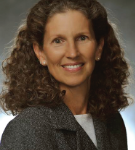 Dr. Pamela G. Reed is Professor at The University of Arizona College of Nursing where she also served as Associate Dean for Academic Affairs. Her research has focused on well-being and mental health across the lifespan, spirituality at end-of-life, and moral distress in frontline caregivers. Her current scholarship focuses on nursing theory, philosophy and scientific knowledge development, and work on a philosophy of nursing science called intermodernism. Dr. Reed’s self-transcendence theory is published in nursing theory textbooks and articles for research and practice, and her Spiritual Perspective Scale and Self-Transcendence Scale have been used by researchers around the world. In addition, she and a colleague have authored several editions of two books, Perspectives on Nursing Theory and Nursing Knowledge and Theory Innovation: Advancing the Science of Practice. Dr. Reed teaches philosophy of nursing science & practice, and theory development to PhD and DNP nursing students. She holds a BSN, MSN (in Child/Adol PMH) and PhD (major in nursing) from Wayne State University in Detroit, Michigan, and an MA in philosophy from The University of Arizona. Dr. Reed is a Fellow in the American Academy of Nursing.
Dr. Pamela G. Reed is Professor at The University of Arizona College of Nursing where she also served as Associate Dean for Academic Affairs. Her research has focused on well-being and mental health across the lifespan, spirituality at end-of-life, and moral distress in frontline caregivers. Her current scholarship focuses on nursing theory, philosophy and scientific knowledge development, and work on a philosophy of nursing science called intermodernism. Dr. Reed’s self-transcendence theory is published in nursing theory textbooks and articles for research and practice, and her Spiritual Perspective Scale and Self-Transcendence Scale have been used by researchers around the world. In addition, she and a colleague have authored several editions of two books, Perspectives on Nursing Theory and Nursing Knowledge and Theory Innovation: Advancing the Science of Practice. Dr. Reed teaches philosophy of nursing science & practice, and theory development to PhD and DNP nursing students. She holds a BSN, MSN (in Child/Adol PMH) and PhD (major in nursing) from Wayne State University in Detroit, Michigan, and an MA in philosophy from The University of Arizona. Dr. Reed is a Fellow in the American Academy of Nursing.
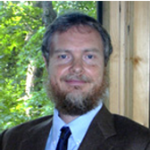 Professor Mark Risjord is a Professor in the Department of Philosophy at Emory University. He studied anthropology and philosophy as an undergraduate at the University of Wisconsin–Madison. In 1990, he received his PhD in Philosophy from the University of North Carolina–Chapel Hill. An interdisciplinary scholar trained in philosophy, Risjord treats philosophical questions as intrinsic to scientific practice. In the first instance, philosophical problems arise as theoretical, methodological, or ethical questions in the sciences. Philosophy subjects these issues to critical reflection, viewing current difficulties in the light of two millennia of literature. In the end, a view’s success should be measured by its capacity to invigorate the scholarship of those who faced the difficulty in the first place. Practiced in this way, the philosophy of science exhibits a distinctive form of interdisciplinarity. With respect to issues in health care, Risjord’s primary focus has been issues in nursing research. His book Nursing Knowledge: Science, Practice, and Philosophy (Wiley-Blackwell, 2010) studies the history of nursing scholarship and contributes to contemporary discussions in nursing about the character of nursing research.
Professor Mark Risjord is a Professor in the Department of Philosophy at Emory University. He studied anthropology and philosophy as an undergraduate at the University of Wisconsin–Madison. In 1990, he received his PhD in Philosophy from the University of North Carolina–Chapel Hill. An interdisciplinary scholar trained in philosophy, Risjord treats philosophical questions as intrinsic to scientific practice. In the first instance, philosophical problems arise as theoretical, methodological, or ethical questions in the sciences. Philosophy subjects these issues to critical reflection, viewing current difficulties in the light of two millennia of literature. In the end, a view’s success should be measured by its capacity to invigorate the scholarship of those who faced the difficulty in the first place. Practiced in this way, the philosophy of science exhibits a distinctive form of interdisciplinarity. With respect to issues in health care, Risjord’s primary focus has been issues in nursing research. His book Nursing Knowledge: Science, Practice, and Philosophy (Wiley-Blackwell, 2010) studies the history of nursing scholarship and contributes to contemporary discussions in nursing about the character of nursing research.
 Dr. Derek Sellman is an associate professor in the Faculty of Nursing at the University of Alberta. He completed a Master’s in Teaching Health Care Ethics and a PhD (Philosophy of Education) at the Institute of Education, University of London. Dr. Sellman is director of the unit for Philosophical Nursing Research. He is a former editor-in-chief (2008-2019) of the journal Nursing Philosophy and is a former Secretary of the International Philosophy of Nursing Society. His book What Makes a Good Nurse: Why the Virtues are Important for Nurses reflects his main research interest in virtue ethics as a base for ethical nursing practice in general and in relation to the moral education of nurses in particular.
Dr. Derek Sellman is an associate professor in the Faculty of Nursing at the University of Alberta. He completed a Master’s in Teaching Health Care Ethics and a PhD (Philosophy of Education) at the Institute of Education, University of London. Dr. Sellman is director of the unit for Philosophical Nursing Research. He is a former editor-in-chief (2008-2019) of the journal Nursing Philosophy and is a former Secretary of the International Philosophy of Nursing Society. His book What Makes a Good Nurse: Why the Virtues are Important for Nurses reflects his main research interest in virtue ethics as a base for ethical nursing practice in general and in relation to the moral education of nurses in particular.
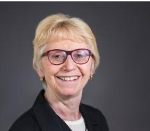 Dr. Sally Thorne is a professor in the School of Nursing at The University of British Columbia in Vancouver, Canada. She studies patient experience in serious and life-limiting conditions such as chronic disease and cancer, most recently focusing on palliative approaches to care delivery across health care sectors and nurses’ experiences with end-of-life care, including medical assistance in dying (MAiD) as the legal framework for that practice evolves in Canada. In addition to her substantive research, she advises various professional and policy organizations, and actively fosters nursing scholarship development through her philosophical and methodological writings, as well as through her role as editor-in-chief of the journal Nursing Inquiry, which is always seeking high-quality philosophical submissions.
Dr. Sally Thorne is a professor in the School of Nursing at The University of British Columbia in Vancouver, Canada. She studies patient experience in serious and life-limiting conditions such as chronic disease and cancer, most recently focusing on palliative approaches to care delivery across health care sectors and nurses’ experiences with end-of-life care, including medical assistance in dying (MAiD) as the legal framework for that practice evolves in Canada. In addition to her substantive research, she advises various professional and policy organizations, and actively fosters nursing scholarship development through her philosophical and methodological writings, as well as through her role as editor-in-chief of the journal Nursing Inquiry, which is always seeking high-quality philosophical submissions.
LATEST NEWS
2024-2025 CNP Nursing Fellowship Application Period is Now Open
The Center for Nursing Philosophy Fellowship program supports promising nursing PhD students or interested nursing faculty to pursue targeted scholarship in nursing philosophy. The PhD Nursing Fellowship comes with a small stipend to be used [...]
The Fourth Annual Joint Center for Knowledge, Technology and Society and Center for Nursing Philosophy colloquium: Race and the Fiction of Sovereign Embodiment
Race and the Fiction of Sovereign Embodiment Thursday, May 23, 2024 | 11am-12:30pm PST Please join us for The Fourth Annual Joint Center for Knowledge, Technology and Society and Center for Nursing Philosophy colloquium, [...]
UPCOMING EVENTS
2024-2025 CNP Nursing Fellowship Application Period is Now Open
The Center for Nursing Philosophy Fellowship program supports promising nursing PhD students or interested nursing faculty to pursue targeted scholarship in nursing philosophy. The PhD Nursing Fellowship comes with a small stipend to be used [...]
The Fourth Annual Joint Center for Knowledge, Technology and Society and Center for Nursing Philosophy colloquium: Race and the Fiction of Sovereign Embodiment
Race and the Fiction of Sovereign Embodiment Thursday, May 23, 2024 | 11am-12:30pm PST Please join us for The Fourth Annual Joint Center for Knowledge, Technology and Society and Center for Nursing Philosophy colloquium, [...]
Virtual Panel: Post/humanism(s): Critical perspectives, issues, and possibilities for nursing
Virtual Panel: Post/humanism(s): Critical perspectives, issues, and possibilities for nursingThursday, January 25, 2024 | 9-11am PST, 12-2pm EST, 6-8pm UKPlease join us for a special webinar panel event, co-hosted by the International Philosophy of Nursing [...]
Register for the Fifth Nursing Philosophy Reading Group
Fifth Nursing Philosophy Reading Group SeriesThe Center for Nursing Philosophy (CNP) is proud to announce its fifth Nursing Philosophy Reading Group series.This reading group aims to continue the dialogue fostered by a recent thought-provoking colloquium [...]
Speculative Ethics For Care Futures Otherwise
In the spirit of transdisciplinary collaboration and imagination, we invite you to participate in a colloquium on Speculative Ethics for Care Futures Otherwise. The colloquium will be held virtually on October 13th, 2023 at [...]
Register for the Fourth Nursing Philosophy Reading Group
The Center for Nursing Philosophy is announcing its Fourth Nursing Philosophy Reading Group series. The fourth reading group series will be co-facilitated by Danisha Jenkins, assistant professor in the School of Nursing at San Diego [...]
Stay in the know
Please subscribe to our mailing list to receive updates on activities and events. We welcome all comments and feedback, as well as ideas for potential collaborations.
By submitting this form, you are consenting to receive marketing emails from: UCI Nursing. You can revoke your consent to receive emails at any time by using the SafeUnsubscribe® link, found at the bottom of every email. Emails are serviced by Constant Contact

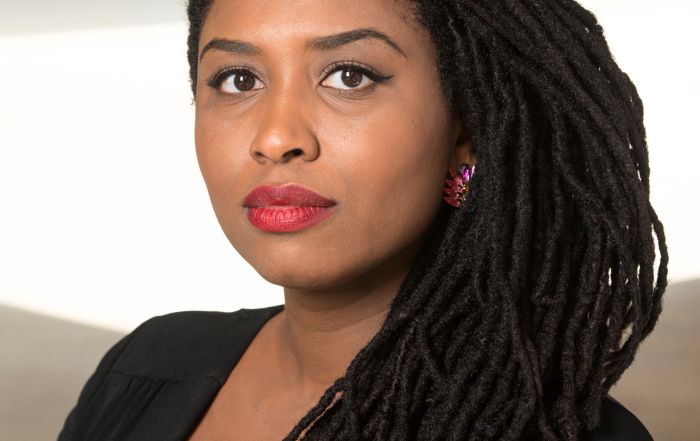
Follow Us!